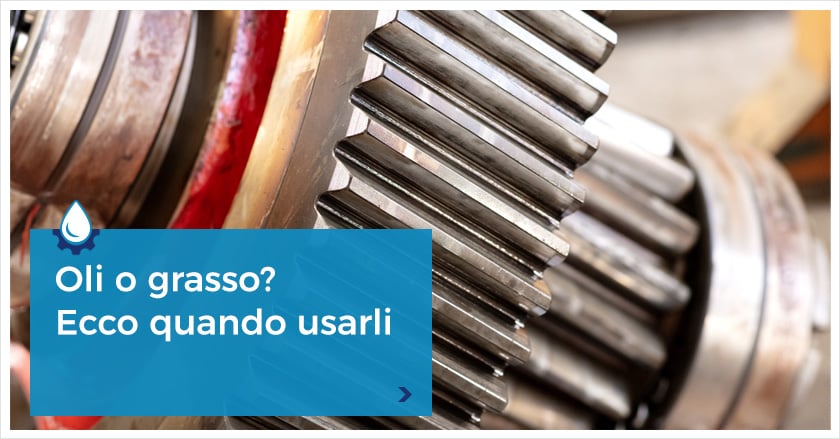
Oils or grease? Here is when to use them ...
Regardless of its complexity and structure, any mechanical system requires constant lubrication to maintain a proper functioning over time.
This lubrication can be ensured by products of different nature and composition, which vary depending on the mechanism itself, the functionality and the application context.
Every type of lubricant, oils and greases, synthetic or natural, has the same common goal: maintain the operation of the mechanism at high levels and extend its duration.
Their contribution to the life and functionality of a mechanical organ is often underestimated but if we told you that choosing the right lubricant for your machinery could increase its efficiency and durability by up to 30%, what would you do?
Lubricating oils and greases: how to choose the right product
If you’re looking for the right grease lubricant for your business, the first thing you need to do is keep the application environment in mind.
Let us explain this a little better ...
If, for example, a bearing has to be in contact with significant amounts of water, you will need to choose a lubricant with properties of high leaching resistance and high corrosion resistance. Conversely, if the bearings are at low speed and under extreme pressure, you can increase the reliability of your devices with a lubricant that contains a high-viscosity base oil, with the ability to withstand high loads.
Oils and greases have different characteristics and uses. They can even be used at the same time. However, greases are usually used for lubrication and protection of mechanical parts as an alternative or in place of liquid lubricants, particularly where the small spaces or sealing problems do not permit the use of oils.
The latter, for their part, require different factors to be determined before they can be applied:
- Standard or synthetic formulation
- Compatibility with high or low temperatures
- Compatibility with other materials (rubber, plastic, etc.)
- Friction capacity
- Protection against oxidation
- Compatibility with food
- Flammability
Lubricating oils and greases: the key to reliability
Using low-quality lubricating oils and greases or those that are not suited to the context of your business, can certainly damage your machinery and create significant economic damage.
The main characteristic of a lubricant is its reliability, meaning its prolonged effectiveness for the entire life time of the product. The variables that can undermine the functionality of a lubricant are numerous, both mechanical-physical and banally linked to the environmental context in which the machinery is placed, for this it is essential to choose a product created specifically for your needs.
We at Macon Research have been working for a long time on the maximum customisation of the product, through the versatility of the production system "ADD ON SMALL BATCH", an elastic and versatile production system able to create totally new lubricating oils and greases or refine existing solutions on the market according to your needs.



